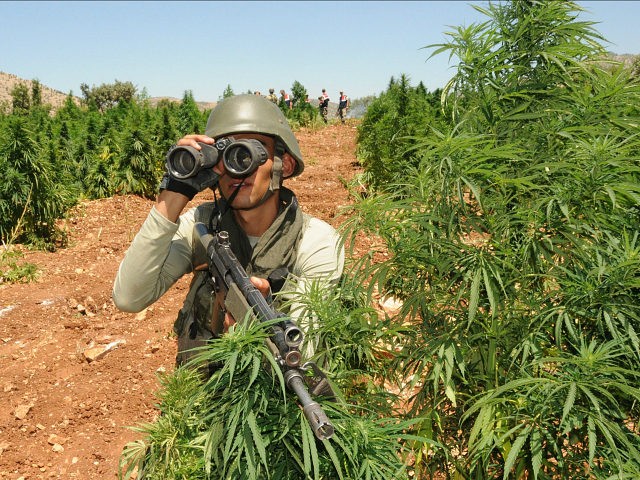In a special parliamentary session to address terrorism following a suspected Islamic State attack on Istanbul’s Atatürk Airport, Turkey’s Interior Minister unveiled a plan to destroy Kurdish separatist marijuana fields.
“We are conducting a total fight against the PKK,” Efkan Ala informed the legislature, referring to the Marxist terrorist group the Kurdistan Workers’ Party. He noted that the military had destroyed 8.8 tons of drug materials consisting of a major chunk of the PKK’s revenue, as well as 43.9 million cannabis roots. “This shows how drug dealing and terrorism have become linked,” he asserted.
Ala condemned the PKK for their calls to create a separate Kurdish state within Turkey. “They have tried to declare ‘cantons’ inside Turkey after they did the same in Syria. They launched these efforts in 12 different provinces in Turkey. But they now realize that Turkey is not Syria and they have all been cleared from these provinces,” he asserted.
Shortly before the terrorist attack, the Turkish military claimed that the PKK makes $1.5 billion annually from selling drugs.
Much of the funding goes into terrorist attacks within Turkey. Some of it, however, makes its way to Syria and Iraq, where the PKK has been active in combatting the Islamic State. In Sinjar, northern Iraq, native Yazidis have attributed the defeat of the Islamic State to the presence of the PKK after the Iraqi Kurdish Peshmerga left the region. The Peshmerga have accused the PKK, however, of preventing them from properly executing operations against ISIS in the region.
The attack on Istanbul’s largest airport on Tuesday has left 42 people dead and 239 injured. Turkish authorities have identified the attackers as Russian, Uzbek, and Kyrgyz members of the Islamic State, and pointed to an Islamic State leader of Russian extraction in Syria as the mastermind of the plan.
In addition to attacking the PKK, the Islamist government of Turkish President Recep Tayyip Erdogan has responded to the attack by distancing the Islamic State from Islam. “They say they do such a thing in the name of Islam. Islam has nothing to do with them, their place is hell,” Erdogan said in a speech on Friday from an Istanbul mosque.
This is the third major Islamic State attack on a Turkish target in the past year. In July 2015, the Islamic State attacked a Kurdish assembly in the border city of Suruç; the group was planning to cross the Syrian border to provide aid to the residents of ISIS-ravaged Kobani. In October of that year, an ISIS suicide bomber attacked a peace rally in the capital, Ankara.
Following the Suruç attack, Turkish authorities arrested over 1,000 more PKK suspects than Islamic State or al-Qaeda suspects — 1,300 PKK suspects compared to an estimated 276 suspected ISIS members.
The PKK and minor sympathizing Kurdish groups have been significantly more prolific in their suicide attacks, though most have had smaller death counts and targeted Turkish soldiers and police. A splinter group known as the Kurdistan Freedom Falcons (TAK) struck Ankara in February and March and Istanbul the latter month. In June, the PKK took responsibility for an attack in Diyarbakir, the southern hub of the Turkish Kurdish community.

COMMENTS
Please let us know if you're having issues with commenting.